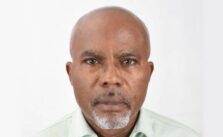AFTER my parents fled Lagos for Mgbidi in the then Eastern region (later East Central State and now Imo State) at the onset of the Biafra – Nigeria civil war in 1967, they registered their children at Central School (primary) in our village. We had been dislocated from St. Jude’s Primary School in the Ebute Metta area of Lagos. Central School was comparable to St. Jude’s in infrastructure, teaching staff, and the quality of instructions. This should not come as a surprise because both schools were run by the Missionaries. They were also located in the bowls of expansive premises. However, Central School had a slight edge because it had a very big green and lush field which served as a football pitch, and for track and field sports events. The only drawback was that the field was located across a major road (now an expressway), the Onitsha – Owerri freeway. On that other side of the road also was the headmaster’s official residence which overlooked the field, and slightly to the left was the ‘i’ shaped teachers’ quarters. If we took time to write about some basic features of what was basically a rural school in the 1960s, it is only because we will have cause to return to it in the course of our engagement today. And it is also because of the recent policy flip flops and our nation’s apparent unseriousness over education since the ill-advised seizure of public primary and secondary schools by the military when soldiers assumed political power in the 1960s.
Tunji Alausa replaced Prof. Tahir Mamman as education minister in the last underwhelming reshuffle of the Cabinet of Nigeria’s president, Alhaji Bola Ahmed Tinubu. The president had said at the time of the Cabinet changes that he dropped some ministers because Nigerians assessed them poorly. But it could be a matter of coincidence that the changes happened at about the same time that the sacked minister was entangled with the controversial subject of the minimum age for the admission of our young adults or children into tertiary institutions. He was reported to have said that any child who was younger than 18 years would be ineligible for admission into the university. Some Nigerians and parents were alarmed and incensed especially because of the suddenness and alleged lack of consultations before the pronouncement. It was reckoned that many kids who were already in the terminal classes in secondary schools may be compelled to idle away for two to three years at home with the attendant risks before they become eligible to sit for the joint admissions and matriculation board examination for admission. The fight was loud, strident and very public. The spat may not be solely responsible for the ouster of the minister, but it may not be entirely unconnected with his sacking.
That minister’s removal has, however, not cured Tinubu’s regime’s proclivity to put its own foot in its own mouth. His has been a case of one week, one controversy. Some of the president’s men and women speak from both sides of their mouths, and often long before they think through any issue. The other day, it was one presidential aide who wrote in a blog post that the federal government was at the cusp of increasing tariffs on electricity yet again. Nigerians screamed. Producers and manufacturers kicked and baulked at the proposed hike, saying that energy already accounts for a substantial percentage of their operational costs and household expenses. The government backed down, at least for now. The aide later went on a long-winding explanation of how the message was misunderstood, and how what was written was twisted and taken out of context. Last week was the turn of the federal ministry of education.
The minister was reported to have said that the federal government had scrapped the junior secondary school and the senior secondary school segments in Nigeria’s school system. In their place our children will subsequently be made to undertake a straight 12-year basic education before admission into the university if qualified. A national newspaper reported the ‘new policy’ thus last week Friday: The federal government has announced the scrapping of all junior secondary schools (JSS) and senior secondary schools (SSS) in the country and introduced a compulsory 12-year uninterrupted basic education model after which a Nigerian child can aspire to higher education. With this development, the Nigerian government is seeking the abolition of the 6-3-3-4 education system and replacing it with 12-4. This is even as it has sought the approval of the national council on education (NCE) to officially adopt 16 years as the minimum entry age requirement into the country’s tertiary institutions. The NCE is the apex policy-making agency in the education sector.
Alausa was said to have spoken in Abuja in the presence of the commissioners for education in Nigeria’s 36 states and the education secretary of the federal capital territory (FCT), officials of agencies and parastatals under the education ministry, as well as representatives of development partners. The minister reportedly elaborated by saying that by subsuming secondary education into basic education, students will benefit from uninterrupted learning up to the age of 16, and that the new policy would align with global best practices. He claimed that the reform would reduce dropout rates by eliminating financial and systemic barriers that currently prevent students from completing secondary education. “Extending basic education to 12 years will ensure a standardized curriculum that is uniformly implemented across the nation. This will also facilitate early exposure to vocational and entrepreneurial skills, preparing students for both higher education and employment. Many developed nations have implemented similar systems where basic education spans 12 years, ensuring that students acquire foundational knowledge before specialising at tertiary levels”. The minister rightly said that “When students receive an extended period of compulsory education, they are better equipped to join the workforce with relevant skills. This reform will also reduce child labour and other social vices resulting from premature school dropout”.
Barely 24 hours after, the education ministry poured cold water on the minister’s declaration. Its director of press claimed that the minister has not scrapped the extant education system but merely made a proposal to the NCE. “At the extraordinary national council on education meeting held on 6 February 2025 in Abuja, the honourable minister of education, Dr. Maruf Olatunji Alausa, presented a proposal for discussion – not an immediate policy change. The proposal seeks to transition to 12 years of compulsory education while retaining the current 6-3-3(4) structure. A key aspect of this proposal is to eliminate the examination barrier between JSS and SSS, allowing students to progress seamlessly without external assessment at that stage. To ensure a well – informed decision, the ministry will undertake extensive stakeholder engagements over the next eight months, consulting education policymakers, state governments, teachers, parents, and other key players. The final decision on whether to adopt this reform will be made at the National Council on Education meeting in October 2025”.
The latest proposal on education that appears afflicted by flip flops from the onset may actually be the way to go in the 21st century. But beautiful policy formulations and the tendency to copy and paste what obtained in other jurisdictions cannot be an end to themselves. It takes commitment and doing by those involved in getting desired and beneficial results from policy formulation and implementation. In 1982, 43 years ago, when the current education system was introduced the aims included making primary education (6 years) universal and accessible to all children; equip pupils and students with fundamental reading, writing, and math skills (basic literacy and numeracy); for junior secondary education (3 years) to introduce students to basic pre-vocational skills; expose students to a range of subjects including languages, mathematics, sciences, and social sciences in a broad based educational format; in the subsequent three years of senior secondary education, to allow students to specialise in specific subjects or fields; and, prepare them for post-secondary education or entry into the workforce. The tertiary education segment (4 years) of the extant system was designed for advanced learning which will provide students with in-depth knowledge and skills in their chosen fields; and, then foster a culture of research, development, innovation and entrepreneurship. “Nwanyi da ada ugbere abuo aguo ihe obu na ukpa onu’”. Literally this means that when you fail twice in an endeavour it will be imperative to stop, reflect and take stock. The 6-3-3-4 replaced the colonial education system we inherited from the British. So, unless anybody else lives in denial and scores the current system as a roaring success, the implication is that we have failed in our quest for useful education again. The sensible thing to ask ourselves at this stage is whether “aguba adighi nko, m’obu onye na-akpu isi amagh oru ya”- is the problem that of the barber or the clippers? I wager that in the case of the serial failures in our education system, the barber is to blame. This is not a prayer, but the proposed 12 years of basic education will fail unless we cure the foundational and human problems besetting our education.
nd these problems are in plain sight. The general guideline by UNICEF is for developing countries to allocate between 15-20% of their annual budgets to education. How many administrations at the national and subnational levels have met this recommendation since the return of democracy (rule by civilians) to Nigeria in 1999? None, we dare say. And that should be a pointer to the store we set on education. Evidence abounds that even much of the meagre, miserable and miserly allocations to education are routinely stolen by stakeholders and superintendents in the sector. And arising from the twin evils nothing worth writing home about happens at all levels of our public school system. There are no teachers training colleges worthy of their names; there are no professional teachers in the true sense of the word; teachers in our country are the wretched of the land who grudgingly opt for the vocation when other options fail; they often engage in petty trading and hawking of wares in school premises to the neglect of their primary job partly because their remunerations are beggarly; the children of our ruling elite do not attend Nigeria’s public schools, in fact they are hardly educated in this country; to put it mildly infrastructure is poor, among other deficits. The truth is that no meaningful teaching and learning can take place in a typical Nigerian public primary and secondary school.
Now that we have just mentioned the acute deficit of infrastructure let’s return to our opening paragraph and Central School, Mgbidi. It cuts the picture of a typical public school. It’s in a state of utter disrepair. The walls of the classrooms are broken, the floors are more of craters, desks are unexistent, and the blackboards are visual eyesores. The land assets have been invaded by all manner of persons and individuals, church and the host community. To cap the absurdity the army who erected a checkpoint right In front of the school has fully taken over and occupied the sports field opposite the school on the Onitsha – Owerri expressway. All manner of shanties have been constructed on the field which also now serves as a parking lot for military trucks. It could be said to be a necessity but what the army contingent in Mgbidi has turned part of the premises of the Central School into is symptomatic of the value this country places on education – abysmally low and unflattering. Policy change now or later will not suffice. “Ka anyi laa oha ajuju”. There’s a need for wider consultations and deeper reflection, and general buy-in by Nigerians. Otherwise…
AUTHOR: UGO ONUOHA
Articles published in our Graffiti section are strictly the opinion of the writers and do not represent the views of Ripples Nigeria or its editorial stand.

